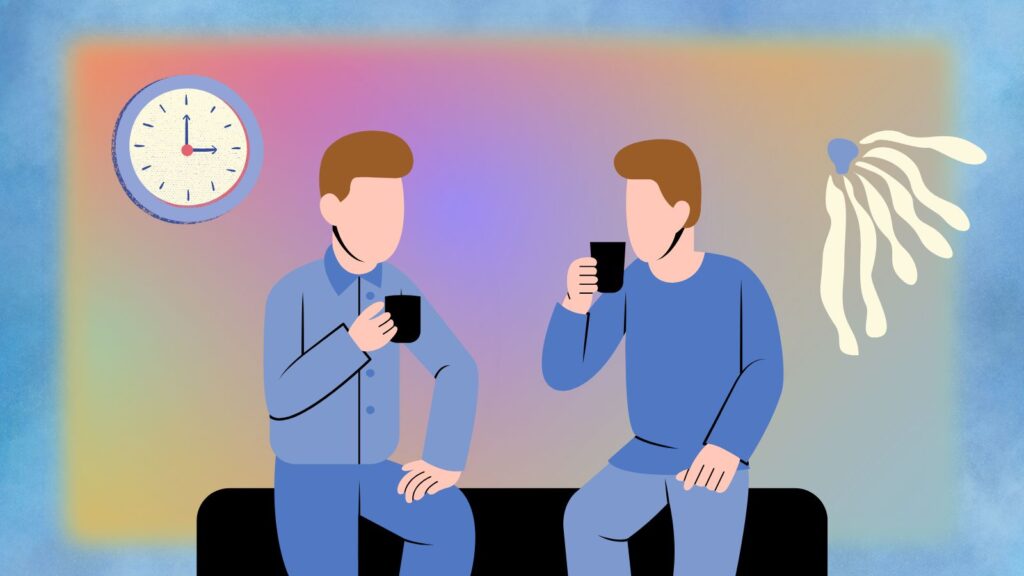While I waited for my husband at his local barbershop in Brattleboro, Vermont, I sat down with a cup of morning coffee to settle in for the next hour. Sitting nearby was my neighbor, a well-respected local farmer, now in charge of one of the few remaining dairy farms passed down from one generation to the next. We didn’t get a chance to catch up too often, so we did.
The conversation turned to psychedelics, since a few of my published articles and recent book, Mindful Microdosing: A Guidebook and Journal, had come to his attention. Not only that, but he was aware of how microdosing had helped my husband with early-stage Alzheimer’s, as well as helped me navigate caregiving with more grace.
He asked how the effort to decriminalize psychedelics in the Vermont legislature was progressing. While access to psilocybin and decriminalizing it were part of the original proposal (S. 114), the proposal now seems to be going in the direction of limiting its use within a medicalized setting.
The Challenges of Addiction and Mental Health
If passed, this effort by lawmakers will benefit those with mental health issues who are already within a complicated, costly system. But what about the growing number of houseless who walk our small town’s streets increasing in number each year? Needles scattered at various locations in downtown Brattleboro, as well as 9-1-1 calls responding to overdoses, highlight the fentanyl use plaguing people’s lives and affecting small communities like mine.
In the midst of our conversation about Brattleboro’s houseless, the inevitable discussion about addiction came up. The mental health field has had an array of pharmaceuticals, therapy approaches, and other interventions that, statistically, have reaped few long-lasting positive results. Psychedelics are now being clinically researched as an exciting possibility to help treat addiction, PTSD, depression, anxiety, and an array of mental health conditions.
I noted that when it comes to addiction, ibogaine has been gaining attention. I shared with my neighbor that other psychedelics will need much more research before the medical community considers use. However, more research is coming. A few of the preeminent neuroscientists, such as Dr. Robin Carhart-Harris and Dr. Christopher Timmermann presented at SOULQUINOX, the Psychedelic Society of Vermont’s annual conference.
Dr. Carhart-Harris presented on psilocybin, while Dr. Timmermann presented findings on DMT; both reviewed the respective compounds and their effect on mechanisms in the brain. Indeed, we are at the frontier of promising research that will pave the way for acceptance within the medical community and, eventually, the FDA.
Legal Access and Underground Use
Waiting for FDA approval may take years if not decades. Passing laws to allow for the legal use of these psychedelics is another ball of wax. If passed, safeguards for quality and processes for reporting transgressions would be possible. In the meantime, those suffering from addictions, PTSD, depression, or anxiety—all increasing nationwide—are listening to the research. They are also hearing personal stories of healing through psychedelics.
FDA and lawmakers aside, when affordable, people are joining retreats in countries where the use of ayahuasca and psilocybin are legal. Some seek out medically supervised treatment for addiction south of the border or under the radar.
Under the radar, or the so-called underground, is where access to psychedelics is growing at a rapid pace. Demand is outpacing the ability or willingness of the FDA or lawmakers to get ahead of this reality. People are willing to take risks. People want hope for a better future. People want agency to make choices for their own healing journeys. This connects us all—in our neighborhoods, communities, and nation.
Microdosing and Shared Experiences
It was not surprising, then, when a gentleman in his late 20s sitting on the other side of the barbershop joined the conversation by stating he was six years sober. He shared that he is in the fifth percentile of the statistics; he has ADD, as do many of his friends who have not been able to get sober. He told us stories of how microdosing has helped with ADD.
After I added that microdosing is helping those with autism, the conversation continued with a mention of the Heroic Hearts Project. The Heroic Hearts Project is a veteran organization committed to helping as many US veterans as possible overcome PTSD and other military trauma by building a community that provides them with safe and supervised access to psychedelic programs. In these programs, vets receive a combination of therapy and travel to a country where the substance is legal for a high-dose psychedelic experience.
At this point, my husband’s friendly barber, razor in hand, chimed in with his own anecdote about one of his good friends. He had been on SSRIs for years and years, he said. After trying one chocolate bar with mushrooms, he felt good. So now his friend eats these chocolate bars and is completely off his SSRIs. That led a second friend to do the same with the exact same results, the barber shared.
Did his friends get any guidance or education on how to microdose? Did they know how much psilocybin was in each chocolate bar? Do they know how much psilocybin they are taking now? Do they know what exactly is in the bars? Or the quality of the ingredients? No, no, no were the answers. They just know it changed their lives, he confirmed.
Common Ground
What it confirmed to me, sitting amongst four men of varying ages, backgrounds, life experiences, and even politics, was that the five of us came together. Psychedelics was our common ground. Despite being in a time of great division as the election approaches, it was stunningly clear how each of us, politics aside, had more in common than what separated us, especially through the safe use of psychedelics to optimize health and well-being.













